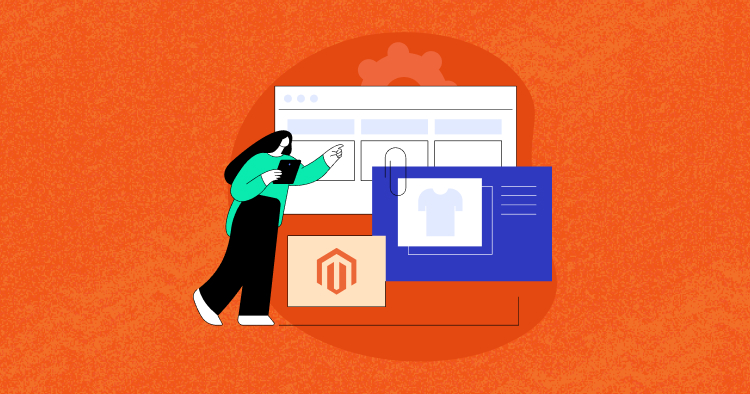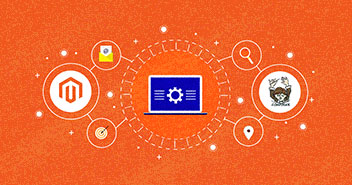
Why do people love to shop online? Because it is easy. It is quick. And, they don’t have to go outside their homes just to buy a single product. However, for an ecommerce store owner, giving an easy and quick service to a customer is not so simple. Setting up a secure online payment process can be challenging as it requires continuous monitoring and improvements.
Ecommerce stores now offer a variety of payment methods that charge customers a lower fee, have multi-currency options available, offer cashless payment options, and other standard payment processing features. Still, they require many different integrations to make them completely secure. The cherry on top, when the payment gateways are not secure, they can lead to more cart abandonments, order cancellations, cashback, and even order delays.

Source: tychesoftwares.com
Let’s discuss online payment problems that store owners face regularly and how they can easily fix them by using the right set of tips and tools.
Online Store Shopping Statistics
- On average, the cart abandonment rate across the globe is 69.7%. This means for every 100 visitors, 69% of visitors will leave the store during the checkout process.
- Mobile users are most likely to leave the website if they find any issues with payment processing.
List of Common Online Payment Problems & How to Solve Them
There are many online payment problems that store owners tend to face. Some of these issues may include but are not limited to:
-
Payment fraud
In 2018, FTC received 18 million complaints related to ecommerce. Out of these, 48% were related to payment fraud. The ecommerce industry is evolving and as your ecommerce store grows, you will receive more fraud orders. Most of these are fake orders that hackers or scammers place at your store to find loopholes and breach store security.
Types of Payment Fraud
Check out the list of different types of payment frauds and how they can impact your store.
- Friendly fraud: Friendly fraud happens when customers make credit card transactions and then contact the credit card issuer to dispute the charge. These customers tend to claim that they haven’t received their products or a refund, or they do not remember making the transaction. This type of fraud has become popular in recent years, which causes significant losses to the merchants.
- Triangulation: This fraud occurs when customers purchase from unreliable online stores. After a customer makes a purchase, the fake sellers will immediately steal the buyer’s card details. There are three participants in the purchase order journey: The customer, the fake online store, and the payment gateway. The motive of this type of fraud is to use the credit card data for self-use or to sell this information to a third party.
- Clean fraud: Clean fraud occurs when the fraudster uses legit information to commit crimes. The criminal has a great deal of knowledge about the card owner.
- Identity theft: Identity theft is a serious crime that happens when data thieves steal the shopper’s information. It is a serious crime
Solution
To curb any type of fraud, you must get a payment fraud detection plugin installed on your website. If you have a Magento ecommerce store, you can get the fraud detection extension by Mageplaza. The extension can detect payment fraud as it occurs, reduces cart abandonment rate, increases customers’ trust, and leads to a secure and seamless payment process.
-
Chargeback
A chargeback is an even bigger problem than payment fraud. A customer charges back the money to demand a refund after making a purchase. 81% of customers admit to filing a chargeback and their reason for doing so: the product was received late or wasn’t delivered. Some of the online shoppers claim that their purchases were fraudulent or made without their permission or knowledge. These chargebacks can have a negative impact on the store’s rating, raising the red-flag in payment gateways, and sometimes making the store close their operations.
Solution
There are two ways to address the chargeback issue.
- Offer excellent customer support: Brief them about the whereabouts of the product and the time when they can expect to receive the product at their doorstep through emails and Facebook inbox.
- Respond to their queries: Customers are impatient and want to get the order ASAP. You can create an automated list of emails that will be sent to the user from time to time telling him where his product has reached. Or, you can do that through WhatsApp as well. This will keep them from charging back and also helps improve their trust in your brand.
-
Credit Card Data Theft
Hackers had stolen almost 14 million credit cards in 2018 in the USA. This is a staggering figure, and as an online store owner, you must consider using online security tools to safeguard your ecommerce store and identity theft. The credit card owners must not hesitate to make transactions when they purchase a product from your online store. You must have relevant measures in place so that you can keep hackers away from stealing essential information from your ecommerce store.

Source: Mageplaza
Worried about cyber attacks?
Get DDoS mitigation at Layers 3, 4, & 7 and a Managed Web Application Firewall & be PCI DSS Compliant with the Cloudflare Enterprise add-on.
Solution
You can secure the payment information of your customers by implementing:
- Use end-to-end encryption with SSL certificate. You can easily get an SSL certificate if you are on Cloudways for FREE.
- Use a secure third-party payment gateway. The first choice of most ecommerce store owners is PayPal because it is popular and offers better customer support than most other payment gateways in the market. However, if you have an ecommerce store, you can also install other secure payment gateways such as Stripe, Skrill, etc.
- Make your store Payment Cards Industry (PCI) compliant. PCI DSS reduces the risk of credit card data loss and helps detect data theft. In case of a potential data breach, PCI DSS tells how to react to it and what measures one should take to solve the issue as soon as possible. You can use Cloudways as it offers PCI-compliant store hosting.
-
Multi-currency Payment Methods
Most store owners have experienced 2X growth in order volume by integrating multi-currency payment options on their stores. By offering multiple currency options, store owners can attract online shoppers from other countries, and entice them to become their customers. There is a problem though. Adding multi-currency support is not easy. Store owners may require a new bank account that can process cross-border transactions. Then, there are regulatory authorities involved that tend to create hurdles in store operation in the new country. These can be restrictions on payment processing, lack of government support, and sometimes ban on expanding services in the country. While some online payment problems are not the scope of this article, if store owners experience any online payment problems they can try reputed payment gateways.
Solution
Use a multi-currency payment gateway such as WorldPay, Stripe, PayPal, etc. Magento store owners can add them to their stores and relax. With these payment processors working for them, they won’t have to worry about any regulatory restrictions.
Final words
Magento store owners must understand the importance of choosing appropriate payment processors and how to resolve the online payment problems. The risks attached to data breaches, limited currency options, and payment methods will diminish if they have a proper online security plan in place. If the store owners want to flourish, they must understand the financial structure of that country, learn about the ecommerce scenario, and then select the right payment gateways. This practice will ensure they receive payments seamlessly while keeping the customers’ data safe.
Author Bio
Jennie is a content expert at Mageplaza where she writes about all the things regarding ecommerce: marketing, design, entrepreneurs, development, strategy, new trends, and technologies. When not working, she travels to discover new locations to learn new things or just indulging her mind with influential books.
Abdur Rahman
Abdur Rahman is the Magento whizz at Cloudways. He is growth ambitious, and aims to learn & share information about Ecommerce & Magento Development through practice and experimentation. He loves to travel and explore new ideas whenever he finds time. Get in touch with him at [email protected]


